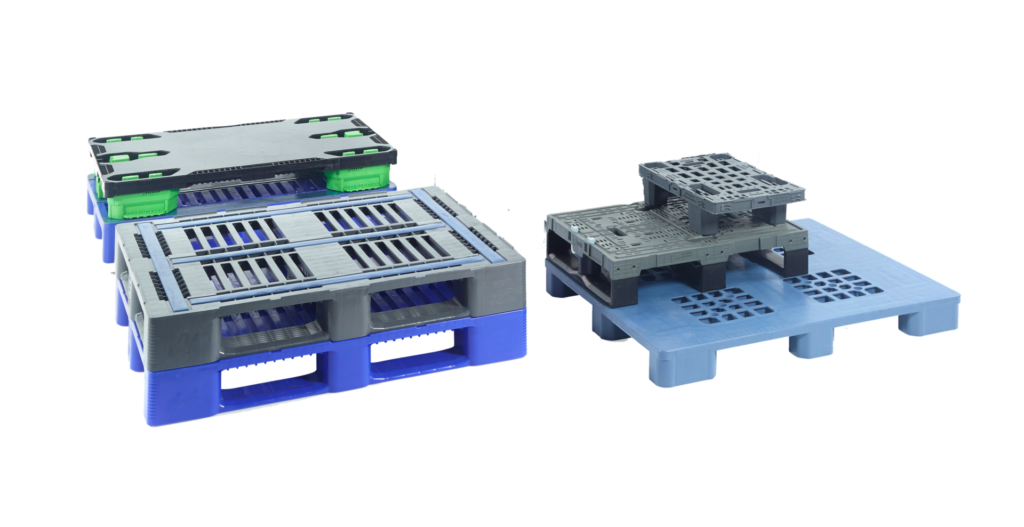Seven Ways to Upgrade your Supply Chain with Reusable Plastic Pallets
Are you considering switching to reusable plastic pallets to replace your outdated, clunky wood pallets? There are numerous benefits to implementing plastic pallets into your supply chain, including reducing costs, allowing for safer operations, and supporting modern improvements in supply chains such as automation and Internet of Things technology. Here are seven reasons why reusable plastic pallets can bring major improvements to your supply chain.

1. Plastic Pallets Are Economical
In addition to a clear improvement in quality and structure, plastic pallets are cost-effective enough to be a feasible option. Because plastic pallets last longer, they won’t need to be replaced as often as wooden pallets, reducing the overall cost per use significantly. And, within a well-managed pooling system, the upfront cost is taken on by the pooler that manages them so you can invest in other areas of your supply chain.
2. Plastic Pallets Are Food Grade Compliant
Plastic pallets are food-grade compliant. They’re made of virgin material, with no harmful substances used during production. Their food compliance makes them an optimal choice for transporting your goods safely. Plastic pallets are also available in recycled material, an eco-friendly choice.
3. They Are Hygienic
Because of the smooth surface of a plastic pallet, it’s easy to wash and keep clean. Bacteria, fungi, and mold have no chance of survival on plastic pallets. Wooden pallets, however, can absorb bacteria because of the way they retain water, a characteristic that also means they are not washable. Reusable plastic pallets are the safest choice for the transportation of your food products. The fact that plastic pallets are more hygienic has led to their widespread adoption in environments that depend on trusted hygiene such as food and consumer goods production.
4. Transportation is Simpler With a Plastic Pallet
Plastic pallets are protected against trading laws such as ISPM-15. You’ll no longer need to worry about acquiring heat-treated wooden pallets for international shipments, or the slowdowns those acquisitions can cause. Keep transportation safe and straightforward by opting for a plastic pallet instead.
5. The Consistent Sizes of Plastic Pallets Support Automation
Because plastic pallets are molded, the sizes and weight are always consistent, causing zero disturbances in your automated material handling systems. The uniform size and resistance to damage support a smoother operation and reduce the risk of jams on lines and on conveyor belts.
6. Traceability Features Can Be Added to a Plastic Pallet
Due to their durability and inherent tendency to last much longer than wooden pallets, Reusable plastic pallets are a natural choice when considering embedding track and trace technology such as RFID tags, GPRS, and IoT technology. Tracing your shipments is simple with readily available data, and is only one of many applications for IoT technology. As the Internet of Things becomes more and more crucial to supply chain operations, it is critical that every asset, especially pallets, is designed to be adaptable to future changes and advancements. Upgrading outdated wooden pallets to plastic pallets with traceable features will streamline your operations, making them more efficient.
7. Plastic Pallets Don’t Contain Foreign Bodies Seen in Wood Pallets
Say goodbye to loose objects or protruding parts in wooden pallets – such as wood chips, splinters, and nails that can cause injuries, jam conveyor belts, or damage products and packaging. Plastic pallets enable a clean working environment and storage area, free of these potentially hazardous materials.
From savings to increased safety and streamlining your operations, there are numerous benefits to opting for plastic pallets. By choosing plastic pallets to increase efficiency in your business, you’ll witness their many advantages over cumbersome wooden pallets for your transporting needs.


